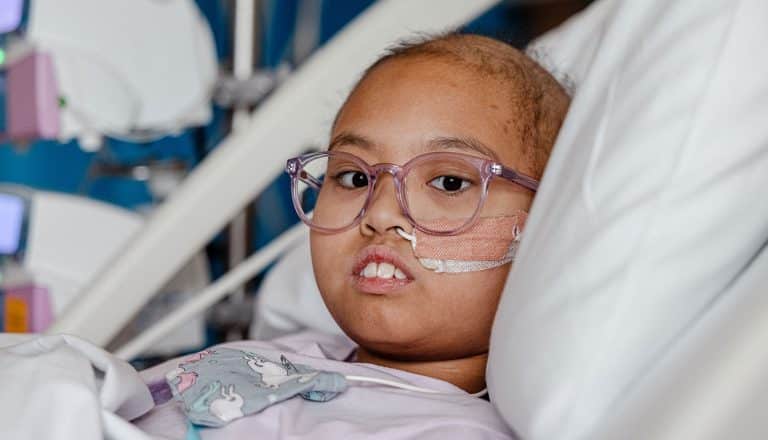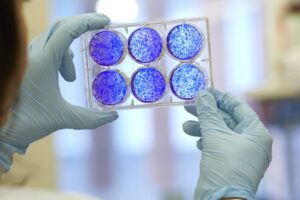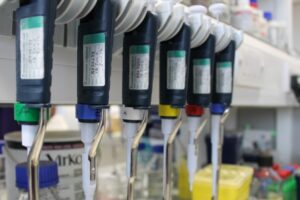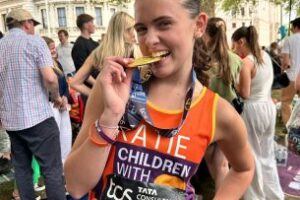World Cancer Day blog – Christiana Ogunbote, Head of Research
Closing the care gap.
4 February 2024

Fighting inequalities in childhood cancer care
Cancers affecting children and young adults leave a lasting impact not only on young patients but on their families. Of the 10 children and young people diagnosed with cancer each day, many will experience long-term, serious reactions from the treatments or therapy they have taken to combat cancer. These children and young adults may require additional care and specialised support following cancer treatments and may experience heart failure, decreased mobility, issues with fertility, development and growth whilst encountering the journey of life young individuals face during their formative years. This World Cancer Day will be focusing on the final year of its multi-year campaign: Close the Care Gap. This initiative is committed to fighting the inequalities of cancer care across the globe and calls on leaders to make effective change. Children with Cancer UK wholeheartedly supports the efforts of this campaign and continues to help families in the UK by funding essential research aimed to promote gentler, kinder treatments and raise awareness of the disease, the needs of patients, their families and wider support for the research community.
Why research is so important
Research is essential for the vital progress required for the care and support of children, young adults and their families. Our research programme at Children with Cancer UK is designed to progress our aims to develop improved treatments so that more patients are cured with less toxic side effects and to better understand how cancer develop so that one day we may be able to prevent it. We strongly believe that investment into high-quality research can help to better inform treatment plans for children and young adults and give them a better outlook following diagnoses. We also understand the importance of treating children and young people as unique individuals rather than as one collective cohort. Therefore, we continue to invest in tailored treatment planning and continue to support the precision medicine efforts through the Stratified Medicine Paediatrics 2 (SMPeads2) platform. SMPaeds2 aims to develop and study new tests that will build upon the success of the first phase of the programme, Stratified Medicine Paediatrics (SMPaeds1), which established the UK’s first National Molecular Tumour profiling platform for relapsed childhood cancer. Molecular tumour profiling maps the unique changes in the DNA of a person’s tumour, giving doctors information to help match the patient to the best treatment or clinical trial for their individual cancer. This allows treatment teams to tailor treatment in real time for the patients’ needs, hoping to improve their care and better their outcome.
Change is needed
Despite continued advancements in cancer prevention, diagnosis, treatment and care there is still much to be done in how we can better care for children and young adults affected by cancer. Treatments developed with young patients in mind, greater investments in specialised follow-up care, support of the paediatric oncology workforce and greater utilisation of data to address challenges are needed to help close the care gap for children and young adults affected by cancer as we strive for change.
We join the call
We join the call on governments around the world and especially in the UK to promote health equity, enhance cancer service accessibility, reduce disparities in cancer incidence and mortality, to finally close the care gap because everyone especially children and young patients deserve access to cancer care.
Especially at this time ahead of a general election we demand a commitment to prioritising cancer, especially the unique needs of cancers affecting children and young adults, to creating innovative strategies designed to confront inequity and to invest our resources to ensure children and young adults affected by cancer survive and have a great quality of life following treatment.
Christiana Ogunbote, February 2024









